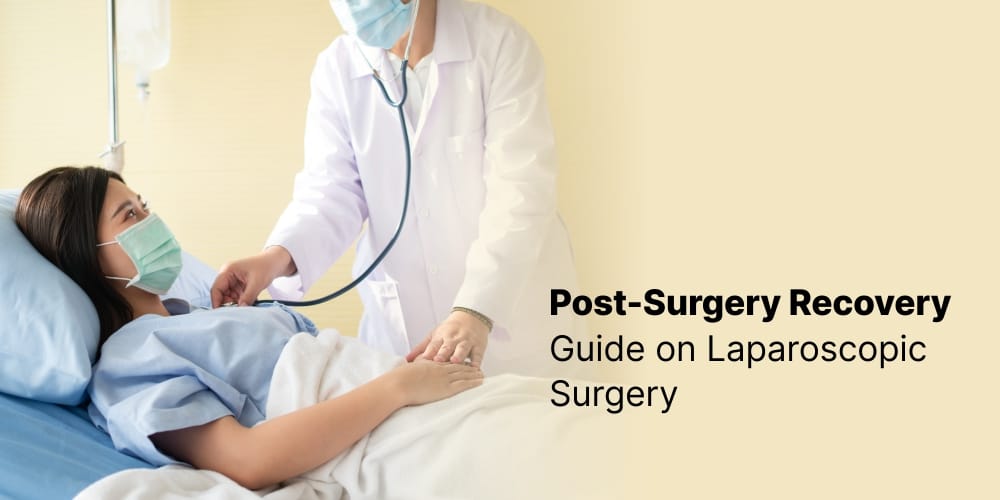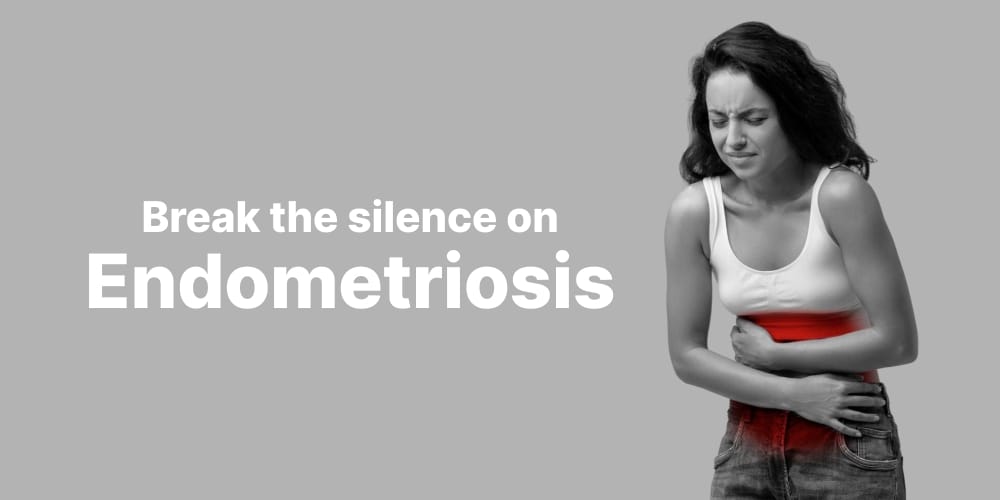Reproductive health is vital to overall well-being, with menstrual health playing a significant role. Menstrual pain, also known as dysmenorrhea, is a common issue that many women face. This pain can range from mild discomfort to severe cramps that interfere with daily activities. Proper management of menstrual pain is essential for maintaining a good quality of life and overall health.
As the best gynaecologist in Jaipur, I, Dr Pankhuri Gautam, am dedicated to providing practical and effective guidance on managing menstrual pain. Understanding the causes and symptoms of menstrual pain is the first step towards finding relief and ensuring that it does not disrupt your daily life.
This blog aims to explore various tips and remedies for managing menstrual pain effectively and maintaining optimal reproductive health.
Understanding Menstrual Pain
“Dysmenorrhea” is the medical term for painful menstrual periods. It happens because your uterus contracts to shed its lining. The pain typically begins just before your period and subsides after a few days. Mild to moderate menstrual cramping is normal. In addition to cramping, you might have other symptoms, such as nausea, fatigue, and diarrhoea. For most people, symptoms subside after about two or three days.
However, some people have such severe pain during their period that it interferes with their day-to-day life and prevents them from doing things they enjoy. Medication and other treatments can help with painful periods. For most people, symptoms subside after about two or three days.
Understanding menstrual pain’s type, symptoms, and causes is the first step in effectively managing and alleviating this common issue.
5 Effective tips for managing menstrual pain
1. Balanced Diet and Nutrition
A balanced diet and nutrition focus on consuming various nutrient-dense foods that provide essential vitamins, minerals, and other nutrients your body needs to function optimally. This includes incorporating anti-inflammatory foods and limiting certain items that can exacerbate menstrual pain. A well-balanced diet not only helps in managing pain but also promotes overall health and well-being.
Here are some dietary tips to help alleviate discomfort during your menstrual cycle:
- Eat plenty of fruits, vegetables, whole grains, and lean proteins. These foods provide essential nutrients and reduce inflammation.
- Foods like brown rice, quinoa, oats, and whole wheat are fiber-rich, which can help regulate your digestive system and reduce bloating.
- Incorporate lean sources of protein, which provide the building blocks for healthy muscle tissue and can help maintain stable blood sugar levels.
- Instead of caffeinated beverages, opt for herbal teas such as chamomile or peppermint, which can have soothing effects.
2. Regular Exercise
Regular exercise involves consistently engaging in physical activities, such as aerobic exercises and stretching routines like yoga. Incorporating both types of exercise into your routine can significantly benefit overall health and specifically for managing menstrual pain.
Here are some Benefits of Regular Exercise for Menstrual Pain:
- Exercise helps improve blood flow throughout the body, including the pelvic region, which can help reduce menstrual cramps.
- Regular exercise helps manage stress; Reducing stress can lead to less intense cramps and a more manageable menstrual cycle.
- Exercise helps relax the muscles, including those in the abdomen and pelvis, which can reduce the severity of cramps.
- Finding an exercise regimen that works for you, whether it involves aerobic activities, yoga, stretching, strength training, or Pilates, can make a notable difference in managing menstrual discomfort.
3. Hydration
Staying adequately hydrated is crucial for overall health and can significantly impact menstrual pain management. Adequate hydration helps reduce bloating, improve circulation, and ease cramps, making it an essential part of self-care during menstruation.
Here are some tips for Staying Hydrated:
- Aim to drink at least eight glasses (about 2 litres) of water daily. This helps maintain fluid balance, reduces bloating, and can alleviate menstrual cramps.
- To boost your hydration levels, incorporate water-rich foods such as cucumbers, watermelon, and oranges into your diet.
- Sip water throughout the day rather than consuming large amounts at once. Keeping a water bottle with you can remind you to drink regularly.
4. Adequate Sleep
Getting enough sleep is crucial for overall health and can significantly impact the management of menstrual pain. Proper sleep helps regulate hormones, reduce stress, and promote overall well-being, making it essential to menstrual pain management. It helps regulate hormonal fluctuations and promotes overall well-being, making menstrual cycles more manageable.
Here are some tips for ensuring Adequate Sleep:
- Establish a sleep routine, and aim for 7-9 hours each night.
- Create a Relaxing Environment, Dark Room, Quiet Space, and Cool Temperature conducive to better sleep quality.
- Use breathable, natural fabrics like cotton for your sheets and blankets. This can help regulate body temperature and improve sleep quality.
- Avoid screens (phones, tablets, computers, TVs) at least an hour before bed.
5. Stress Management
Effectively managing stress is crucial for overall health and can significantly alleviate menstrual pain. Stress can exacerbate menstrual symptoms, including cramps and bloating, by affecting hormone levels and muscle tension. Implementing stress management techniques can lead to a more comfortable menstrual experience.
Here are some tips for Managing stress:
- Practice Mindfulness and Meditation, such as Deep breathing and yoga.
- Engage in relaxing activities such as reading, listening to music, and using a warm bath.
- Engaging in creative activities like drawing, painting, knitting, crafting, or Writing and Journaling can help you relax and express emotions, reducing stress.
- Sharing your feelings and experiences with trusted friends or family can provide emotional support and reduce stress.
- If stress becomes overwhelming, consider seeking help from a therapist or counsellor.
5 Best Home Remedies for Menstrual Pain
1. Heat Therapy
Heat therapy is a simple yet effective method for managing menstrual pain. Applying heat to the lower abdomen helps relax the muscles, improve blood flow, and alleviate cramps. It is a non-invasive and easy-to-use remedy that can significantly relieve menstrual discomfort.
Here are some tips for using Heating Therapy:
- Place a heating pad or hot water bottle on your lower abdomen. The heat helps relax uterine muscles and reduces cramping.
- A Warm bath helps relax the entire body, reduces muscle tension, and alleviates menstrual cramps. The warmth improves blood circulation, which can ease pain.
- Disposable heat wraps are available. These wraps can be worn under clothing for continuous heat therapy throughout the day, making them convenient for use at work or on the go.
- Always place a cloth or towel between your skin and the heat source to prevent burns.
2. Herbal Remedies
Herbal remedies have been used for centuries to alleviate menstrual pain and discomfort. Natural herbs like ginger and chamomile have anti-inflammatory and antispasmodic properties that can help reduce cramps and promote relaxation. Incorporating these herbal remedies into your routine can provide a natural and effective way to manage menstrual symptoms.
Here are some Effective Herbal Remedies:
- Ginger Tea contains compounds like gingerol that have powerful anti-inflammatory effects, which can help reduce menstrual pain and inflammation.
- Chamomile Tea is known for its soothing properties and can help relax the uterus, reduce spasms, and alleviate menstrual cramps.
- Peppermint contains menthol, which has antispasmodic properties that can help relieve menstrual cramps.
Tips for Using Herbal Remedies
- Use these herbal remedies consistently throughout your menstrual cycle or at the onset of symptoms for best results.
- Choose high-quality, organic herbs and teas to ensure the best therapeutic effects.
- If you have any medical conditions or are taking medications, consult with a healthcare provider before using herbal remedies.
3. Essential Oils and Aromatherapy
Essential oils and aromatherapy offer natural and effective ways to manage menstrual pain. Essential oils like lavender and clary sage have properties that can reduce pain, relax muscles, and improve mood. Incorporating these oils into your routine can provide significant relief from menstrual discomfort.
Here are some tips for using Essential Oils:
- Always dilute essential oils with a carrier oil before applying them to your skin to prevent irritation.
- To check for allergic reactions, perform a patch test by applying a small amount of diluted oil to a small skin area.
- If you are pregnant, nursing, or have any medical conditions, consult a healthcare provider before using essential oils.
5. Over-the-Counter Pain Reliever
Over-the-counter (OTC) pain relievers are widely used and effective for managing menstrual pain. They provide quick relief from cramps and discomfort, making it easier to continue daily activities. Two common types of OTC pain relievers are nonsteroidal anti-inflammatory drugs (NSAIDs) and acetaminophen.
Here are some Tips for Using Over-the-Counter Pain Relievers:
- Drink plenty of water when taking pain relievers to help your body process the medication and reduce the risk of side effects.
- Always follow the recommended dosage instructions on the package.
- Consult your healthcare provider if you have any underlying health conditions or are taking other medications.
6. Dietary Supplements
Dietary supplements can provide additional support in managing menstrual pain and symptoms. Nutrients like magnesium and vitamin B6 have been shown to alleviate cramps, reduce bloating, and improve mood, making them valuable additions to a menstrual pain management plan.
Here are some tips for using Dietary Supplements:
- For the best results, take dietary supplements consistently and as directed.
- Supplements should complement a balanced diet. So, Ensure you’re eating a variety of nutrient-rich foods.
- Drink plenty of water to help your body absorb and utilize the supplements effectively.
- Always consult with a healthcare provider before starting any new supplement regimen.
Alternative Therapies for Managing Menstrual Pain
1. Acupuncture
Acupuncture is a traditional Chinese medicine technique that involves inserting thin needles into specific points on the body to balance energy flow and stimulate the body’s natural healing processes.
For menstrual pain, acupuncture aims to improve blood flow, reduce inflammation, and release endorphins, which are natural painkillers. It can also help regulate hormonal imbalances that contribute to menstrual discomfort.
2. Chiropractic Care
Chiropractic adjustments focus on aligning the spine, which can improve nerve function and blood flow. Misalignments in the spine may contribute to menstrual pain by affecting the nerves that regulate the reproductive organs.
By correcting spinal misalignments, chiropractic care can help improve the function of the nervous system, reduce pain signals, and promote better overall reproductive system function.
3. Massage Therapy
Massage therapy helps relax tense muscles, improve blood circulation, and reduce pain. It can also lower stress levels, which can exacerbate menstrual pain.
Massage stimulates the release of endorphins, natural pain-relieving and mood-boosting chemicals in the body.
Preventive Measures
Regular visits to your healthcare provider can help detect any underlying health issues early, including conditions that may contribute to menstrual pain. Routine check-ups allow your healthcare provider to monitor your menstrual health, assess any changes in symptoms, and provide appropriate guidance or treatment.
Your healthcare provider can perform necessary tests, provide a diagnosis, and recommend appropriate treatments or interventions to manage menstrual pain effectively. Early intervention can help improve your quality of life and overall menstrual health.
Conclusion
Maintaining menstrual health is essential for women, influencing their overall well-being and quality of life. By implementing the tips and strategies discussed in this blog, you can take proactive steps to manage menstrual pain effectively and improve your health.
As the best gynaecologist in Jaipur, I, Dr. Pankhuri Gautam, am committed to providing practical advice and personalized care tailored to your unique needs. Whether you’re exploring lifestyle changes, considering alternative therapies, or seeking relief through medications and supplements, these approaches can make a significant difference in managing menstrual pain.
Visit our clinic for Regular health check-ups. Making informed decisions about your health and exploring different methods can empower you to achieve better menstrual health. Contact us today to schedule a consultation and start your journey toward a more comfortable and fulfilling menstrual experience. Take charge of your health and discover the best strategies for you.






